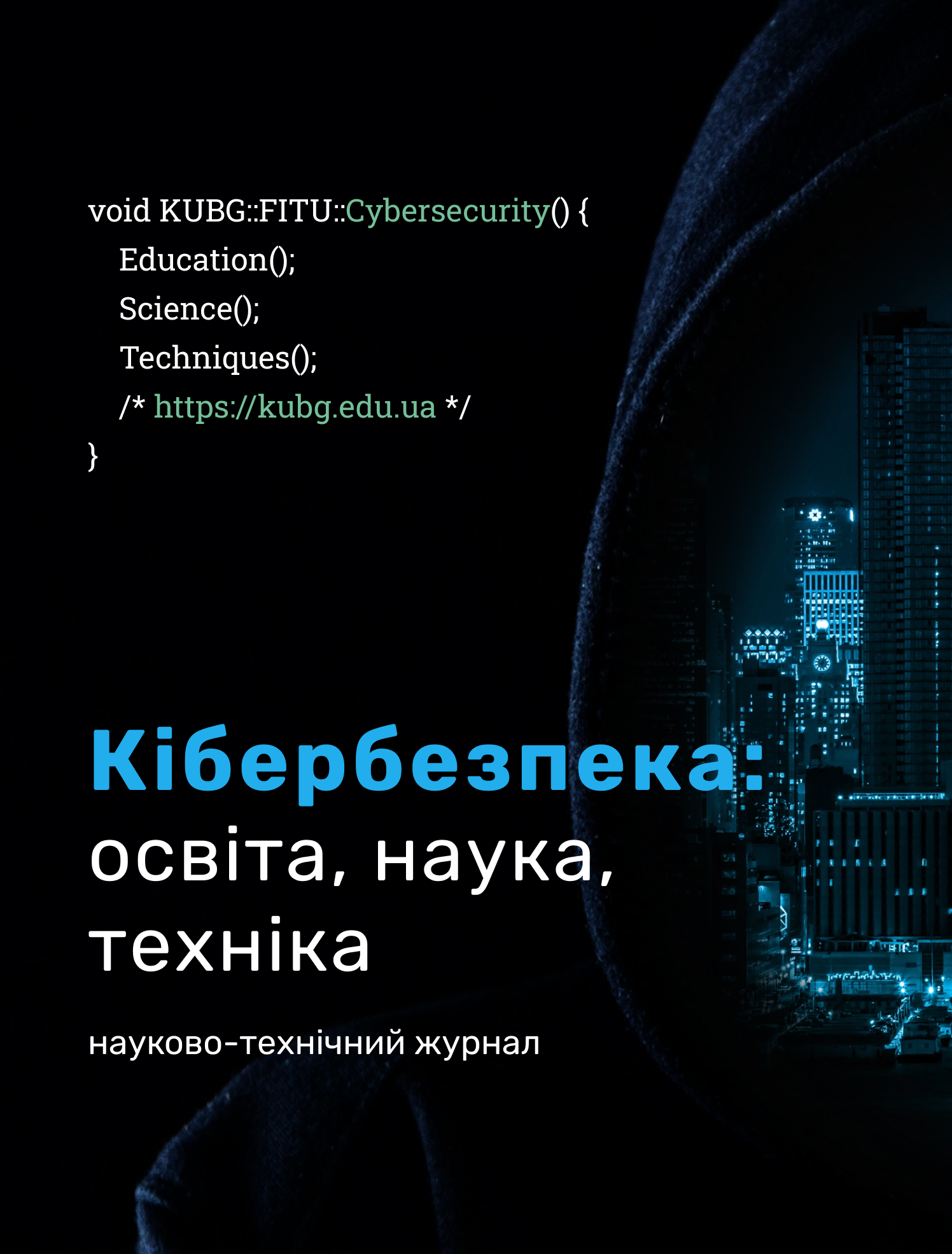A METHOD FOR PREPARING INITIAL POLYNOMIALS FOR RECURSIVE SYSTEMATIC CONVOLUTIONAL TURBO CODES USING A GENETIC ALGORITHM
DOI:
https://doi.org/10.28925/2663-4023.2024.24.266281Keywords:
corrective codes; turbo codes; wireless data transmission systems; likelihood functions; adaptation.Abstract
The article is devoted to increasing the efficiency of wireless information transmission systems with adaptation due to the preparation of initial polynomials of recursive systematic convolutional codes of turbo codes using a genetic algorithm. As an objective function, an indicative number of sign changes of the a priori-posterior information of the turbo code decoder for a certain sample of data bits is proposed. As prior information, the value of channel symbols is used, taking into account the channel “reliability” function, which indicates the level of dispersion of additive white gaussian noise. The logarithm of the ratio of the likelihood functions about the transmitted bit of data is used as posterior information. The analysis of known works shows that when using adaptive systems with coding as an adaptable parameter, the coding speed is used, which is regulated by the number of check symbols from the output of the turbo code encoder, while there are no developments on the adaptation of turbo code polynomials, as well as on the rapid formation of initial polynomials recursive systematic convolutional codes turbo codes. The use of rational polynomials as initial ones during adaptation will allow more effective use of the energy efficiency of wireless data transmission systems. The article consists of an introduction, which highlights the problem, analyzes the latest research and publications on this topic, and formulates the purpose of the article. The results of the research are shown, conclusions and prospects for further research are drawn. The article ends with a list of used sources. As a result of the work of the proposed method, the primary polynomials of turbo codes, which were found using a genetic algorithm for a channel with additive white Gaussian noise, are given. We consider the search for initial interleavers between component recursive systematic convolutional codes of turbo codes to be the direction of further research.
Downloads
References
Mirjalili, S. (2019). Genetic algorithm, Evolutionary algorithms and neural networks. 43–55. https://doi.org/10.1007/978-3-319-93025-1_4
Kramer, O. (2017). Genetic algorithm essentials. Springer, 679. https://doi.org/10.1007/978-3-319-52156-5
Hariyadi, P. M., Nguyen, P. T., Iswanto, I., & Sudrajat, D. (2020). Traveling Salesman Problem Solution using Genetic Algorithm. J. Critical Reviews, 7(1), 56–61. http://dx.doi.org/10.22159/jcr.07.01.10.10
Katoch, S., Chauhan, S. S., & Kumar, V. (2021). A review on genetic algorithm: Past, present, and future. Multimedia Tools and Applications, 80. 8091–8126. https://doi.org/10.1007/s11042-020-10139-6
Shrivastava, P., Dhingra, S.L. & Gundaliya, P.J. (2010). Application of genetic algorithm for scheduling and schedule coordination problems. Journal of Advanced Transportation, 36(1), 23–41. https://doi.org/10.1002/atr.5670360103
Nugroho, E. D., Wibowo, M. E. & Pulungan, R. (2017). Parallel implementation of genetic algorithm for searching optimal parameters of artificial neural networks. 3rd International Conference on Science and Technology-Computer (ICST), 136–141. https://doi.org/10.36227/techrxiv.12657173.v1
Mensouri, M., & Aaround, A. (2016). Adaptive encoding/decoding for turbo codes. International Conference on Big Data and Advanced Wireless Technologies (BDAW`16), 1–7. https://doi.org/10.1145/3010089.3010096
Xie, C., El-Hajjar, M., & Xin Ng, S. (2023). Machine learning assisted adaptive LDPC coded system design and analysis. IET Communications, 18, 1–10. https://doi.org/10.1049/cmu2.12707
Berrou, C., Glavieux, A., & Thitimajshima, P. (1993). Near Shannon limit error-correcting coding and decoding: Turbo-codes. International Conference on Communications (ICC-93), 1064–1070. https://doi.org/10.1109/ICC.1993.397441
Published
How to Cite
Issue
Section
License
Copyright (c) 2024 Павло Курбет

This work is licensed under a Creative Commons Attribution-NonCommercial-ShareAlike 4.0 International License.




